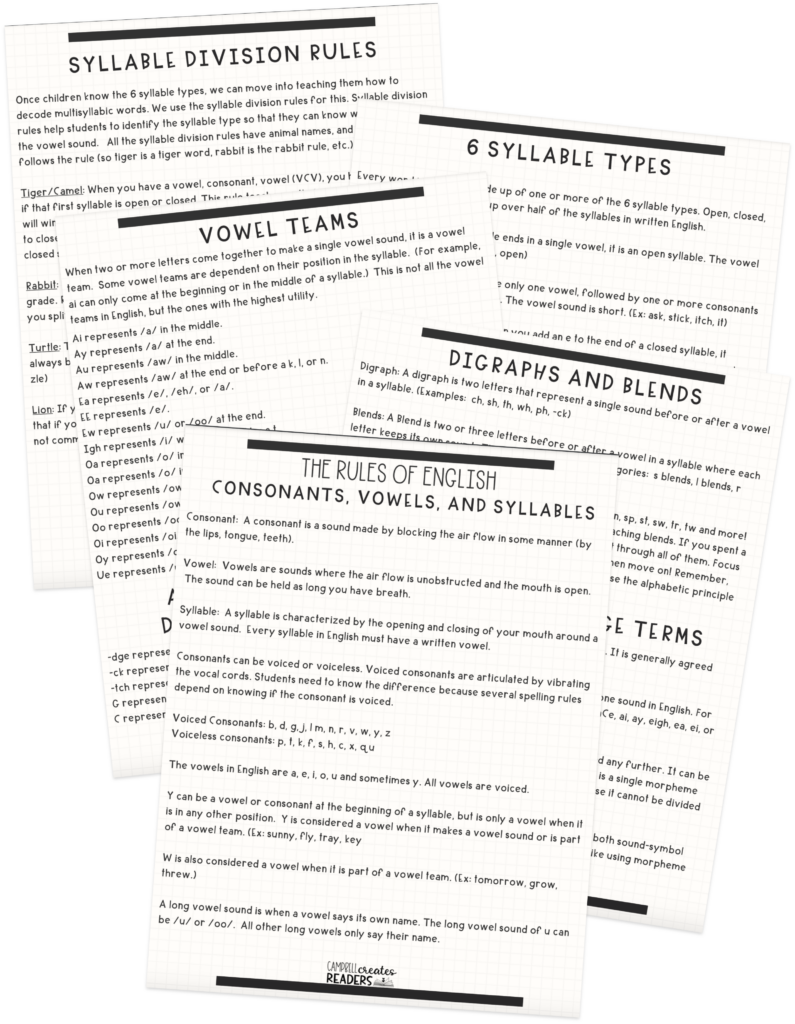
Share This:
As teachers begin to learn more about the Science of Reading, it’s natural that we want to extend the conversation to parents. There’s just SO MUCH to get excited about because it feels like we’ve unlocked the code and we want to share it with everyone we come across. Today, I want to talk about ways we can share best practices with our parents.

This blog post has actually been sitting on my laptop, unfinished, since August 2021. It just didn’t feel right. Now, looking back, I realize why. I can’t write an article without being honest about my thoughts on the work we expect children to do at home. Every year, you will have parents who are willing and able to come in for parent-teacher conferences, do work with their children nightly, and support the work you are doing with their child at school.
And then you will have parents who cannot or will not. And you have to be okay with that. There are some parents who work all day and simply don’t have the energy to come home and work with their children. There are some parents that don’t have the skills to help their children at home. At the end of the day, you have to accept the fact that there will be some children for whom what you get during those 7 hours of the school day is all you’re going to get.
You will also have children that look at work they have to do at home as the biggest chore of their lives. These are most often the children who need the extra help the most. But I can’t imagine being a child who struggles all day at school, just to be told that I have to go home and struggle through some more work. I don’t blame parents for not wanting to continue that fight at home.
Now that I’ve gotten that off my chest, there ARE some parents who are in a good position to take on extra tasks at home. If that is the case, then by all means let’s give it to them. Just keep in mind, though, that parents don’t want a class in theory. They don’t need to know about Ehri’s work or hear the arguments raging about phonemic awareness to help their children. So, what can we do?
I will not belabor whether or not we should give children homework. My personal belief is that, especially for our youngest children, homework should be minimal or nonexistent. I do not believe in consequences attached to homework. We can only control what our children do when they are in front of us. While there are some parents who are able to sit and help their children after school, many parents are unable to do so. Children should not be punished for things beyond their control.
Now that I’ve shared some general guidelines for parents, let’s talk about practical ways we can have parent support their children at home.
Phonemic awareness is the concept that I wish more parents knew about to better help their children. Most parents don’t realize that reading starts with sounds. Even if a parent could help their child by simply segmenting and blending a few words each night, that would be a powerful tool.
So how can we get parents to help us? My FREE phonemic awareness homework is a GREAT way) for quick, authentic phonemic awareness practice. In under 1 minute, parents can help their children. Moreover, by completing these activities, they can generalize the activities that they are doing to other activities. A lot of parents just don’t realize that phonemic awareness is something their children need!
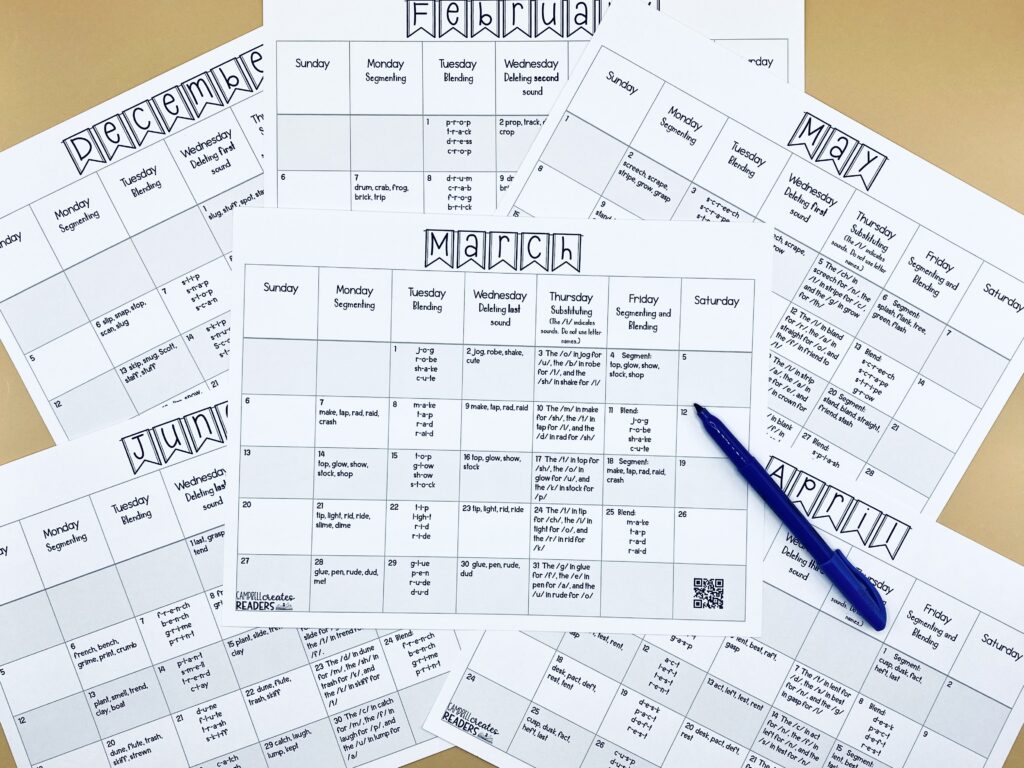
You can also ask students to have their children say the sounds of a word anytime they are spelling. When they are practicing their spelling words at home, ask parents to tell them to tap the sounds before they begin spelling, and to then say the sounds as they spell.
Why do we see so many sight word flashcards at home? Why are there so many workbooks, You Tube videos, and 463 million Google results for sight words? Sight words are such a popular at-home activity because it appears to be a concrete way to help children learn to read. When learning to read seems so invisible, this is a visible activity that parents can use.
I would explain to parents, either via a letter or in a conference, why we no longer teach sight words in the old-fashioned “just memorize it” way. Honestly, it should be a relief to parents that their children aren’t expected to memorize 100 different sight words. You can use my FREE letters as a starting point, or send home as is! Instead of sending home sight words to memorize, you can include a few heart words each week to practice.
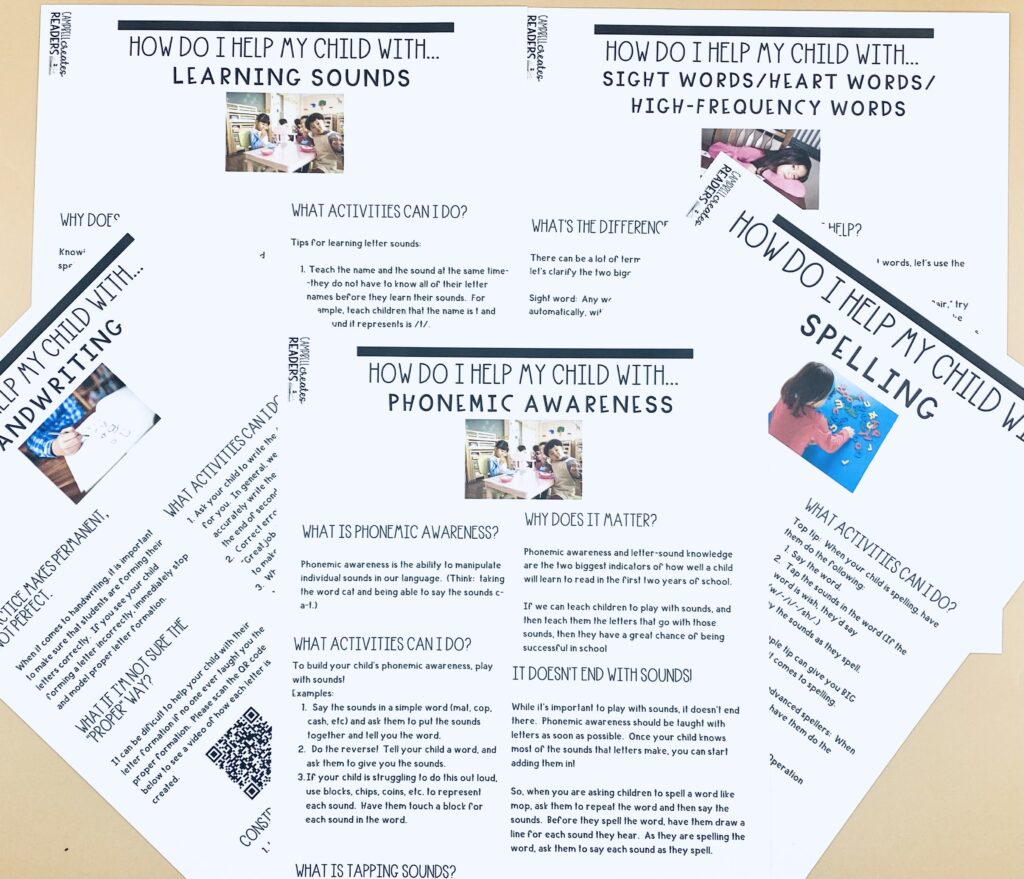
Remember, parents are not teachers. While they can help with phonics at home, the reality is that parents should not be expected to teach their children phonics rules. Many teachers don’t know the phonics rules! What we do want is for our parents to give their child the practice they need in reading to become proficient readers. And we want them to continue reading to and with their child for as long as possible.
So how can parents help with phonics instruction? I have 5 tips I think would help eliminate some less-effective practices. Feel free to copy and paste these tips into a letter, newsletter, or online for your classroom.
Talking about phonics and phonemic awareness was easy. There are hands-on, easy ways that can make those concepts more attainable. But how do we do the same for comprehension? I thought about recommending graphic organizers, but that didn’t feel authentic. And that’s when I realized what we really need parents to do at home for comprehension–be authentic and enjoy books with their kids.
We cannot simply assign comprehension of a book. If we want our parents to work on comprehension with students, the best thing they can do is to continuously read with their child and talk about what they are reading. I know you want a more concrete answer, but I can’t think of anything better a parent can do for comprehension than read books with their children that they love, and to talk about those books. Turning a nighttime reading session into a structured reading response activity just feels wrong.
You will certainly come across a few parents every year who do want to know more about the Science of Reading beyond its practical applications. But we don’t have to just talk to them about the Science of Reading. Let’s never miss an opportunity to make it an authentic, engaging event for both parents and students.
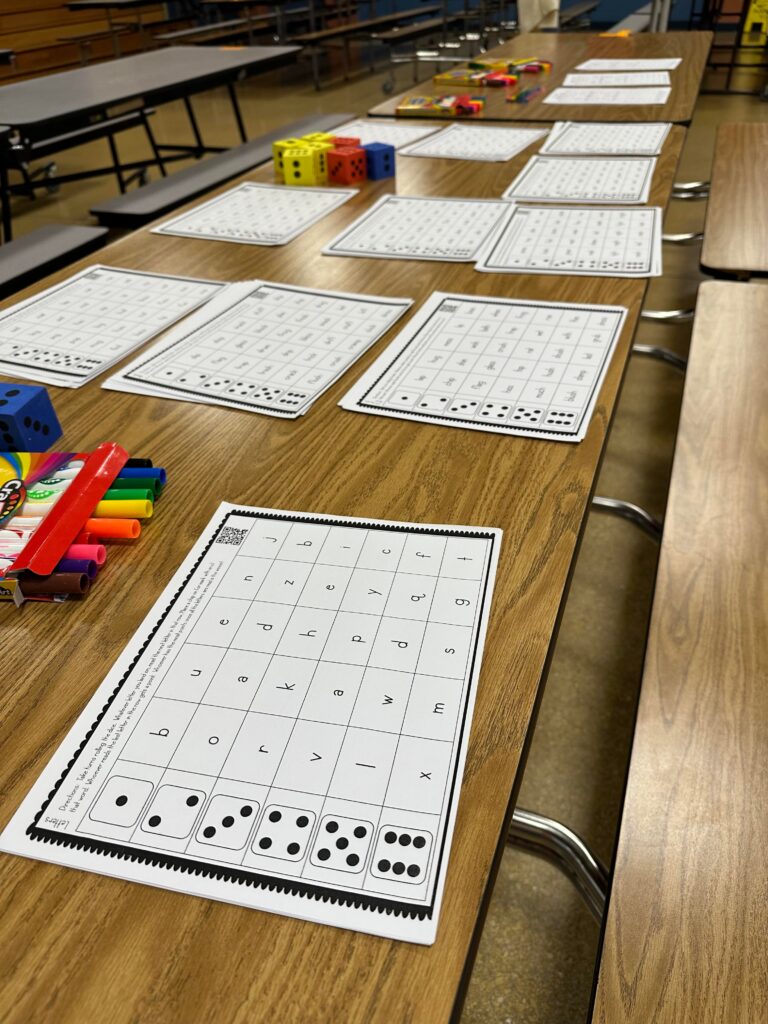
I still don’t think you need to give a detailed lecture about the Science of Reading. Instead, you could let them know the basic principles. I would offer some information about how we learn to read. Discuss how reading is not a natural process. Talk about some of the things I shared above, and have copies available of those parent letters.
But make it FUN. If there’s a budget, food is always a winner. We have hosted pizza parties in the past, and also asked our cafeteria to make us special breakfasts.
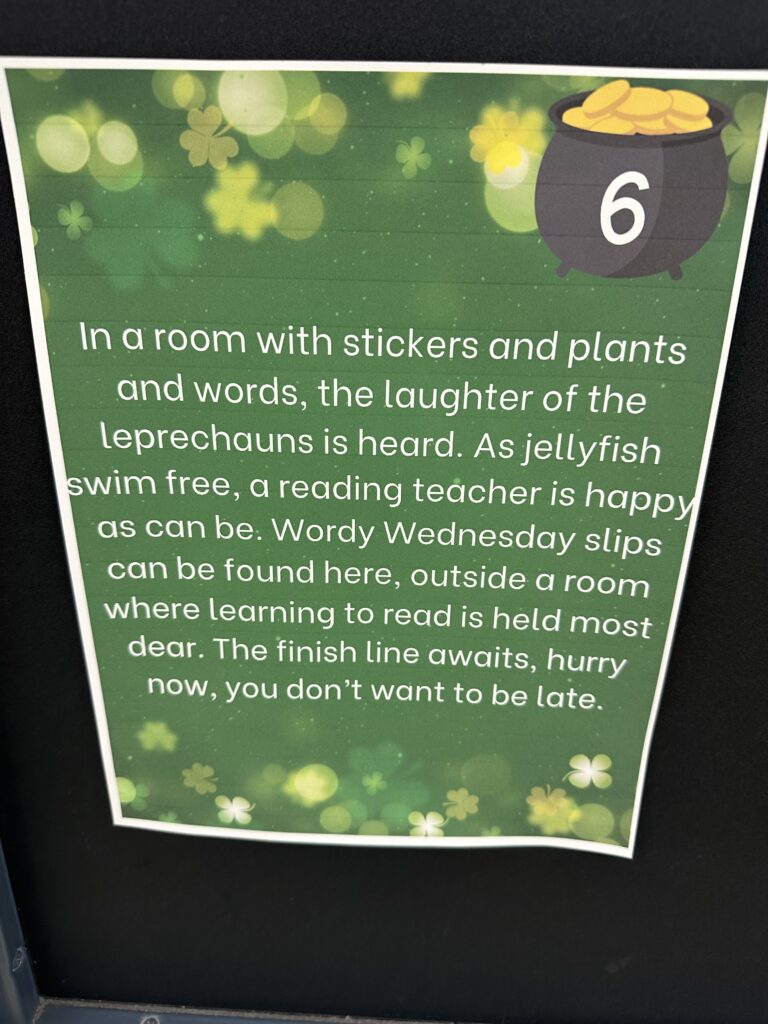
Beyond just feeding families, engage in an authentic literacy activity. At our latest event, we did a St. Patrick’s Day scavenger hunt. The K-2 students got to read a book and follow the clues around the school, while the older kids had riddles they had to solve for their next location. We’ve also done literacy game nights and partnered with our librarian during the Book Fair to give all children access to books.
For a while (yes, almost 3 years), this blog post just didn’t work. It didn’t feel right or sit right with me. I think, in the end it’s because I know how hard parents are working at home. Coming from a single-parent home, I think about how overwhelmed parents must be. Remember to give parents some grace. While parents will always be their child’s first teacher, it’s important to remember that we are the ones who must do the heavy lifting now. At the end of the day, let’s be content with the 7 hours we are given to make a difference in the lives of these children.
Share This:

Savannah Campbell is a K-5 reading specialist. She has taught her entire 12-year teaching career at the school she went to as a child. She holds two master’s degrees in education from the College of William and Mary. Savannah is both Orton-Gillingham and LETRS trained. Her greatest hope in life is to allow all children to live the life they want by helping them to become literate individuals.

Savannah Campbell is a K-5 reading specialist. She has taught her entire 12-year teaching career at the school she went to as a child. She holds two master’s degrees in education from the College of William and Mary. Savannah is both Orton-Gillingham and LETRS trained. Her greatest hope in life is to allow all children to live the life they want by helping them to become literate individuals.
Feeling overwhelmed with all the terminology out there? Want to know the key terms all teachers need to teach phonics? In this FREE Rules of English cheat sheet, you get a 5 page pdf that takes you through the most important terms for understanding English—you’ll learn about digraphs, blends, syllable types, syllable divisions, and move. Grab today and take the stress out of your phonics prep!
